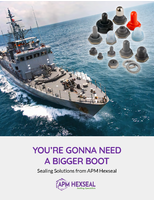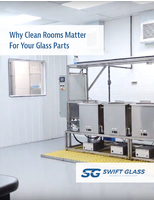More Information about MOKAWA
The Company
MOKAWA is a company concentrating in the acquisition and manufacturing of special metals, refractory metals, and rare earths. Our portfolio of high quality special metals and parts can be ordered in a range of quantities at low cost and we can support various delivery options and time frames. Whether you require a metal with a high melting point or good thermal conductivity, high elongation or good corrosion resistance, a particularly high density or robustness: MOKAWA is your contact partner for all areas. Our friendly team of technical experts are always there for you
MOKAWA is the ideal partner for acquiring standard or custom parts, such as bolts, nuts, threaded rods etc. MOKAWA fulfils custom requests for components and prototype parts fabricated from precious metals, precious-metal-semifinished, high-melting-metals, such as molybdenum, tantalum, tungsten, TZM, titanium, etc. Due to MOKAWA‘s expertise and flexibility we procure and fabricate for customers in the fields of:
MEDICAL TECHNOLOGY
FILAMENT INDUSTRY
TELECOMMUNICATIONS
WATCH INDUSTRY
UHV APPLICATIONS
GLASS MANUFACTURE
VEHICLE, SHIP AND AIRCRAFT
CONSTRUCTION
UNIVERSITIES AND RESEARCH
ORGANISATIONS
CONFLICT MATERIALS STATEMENT
(DODD FRANK ACT 1502)
We source our materials from designated manufacturers and have these reinsured as well about this topic to check their sources in terms of the "Conflict Material Theme". Our suppliers ensure that they do not use material (tantalum, tin, tungsten and gold) which serve to finance the armed conflict in the Democratic Republic of the Congo or an adjoining country.
In our products none of the so-called "Conflict Materials" from the DRC or adjoining countries are based on our present state of knowledge. We are not able to give a guarantee as a distributor, but we are committed to this critical issue, to be sensitive and to reinsure us with our options at our suppliers.
MOKAWA has many years of collaboration with Cern, Max-Planck-Institutes, Fraunhofer Institutes, technical institutes and large commercial companies around the world. MOKAWA is a reliable and innovative partner in the special- and precious-metals industry.
Product Range
The product range from MOKAWA in Pittsburgh covers an extensive range of various special, refractory and precious metals in a variety of shapes and dimensions. We deliver all products from our warehouse promptly, and are happy to procure others for you as quickly as possible.
You can find an overview of our range, product data and the various delivery options on the following pages. If you have any questions, we will be happy to help you with our expertise and experience at any time.
LEAD (PB)
Lead is a blueish white, shiny at cut surfaces soft heavy metal that is only corroded by the air on the surface at normal temperatures, causing it to take on a matt bluish grey colour. Pure iron is blueish white and polishable. Iron is the most important heavy metal – already known in ancient times, it was used to produce weapons and tools. With a hardness of 60 kp/ mm², the pure metal is not particularly hard.
MOLYBDENUM (MB)
Molybdenum is a silver–white (in one piece) or grey (powder), stretchable and polishable heavy metal that is hard and brittle yet still easy to process. Molybdenum is among the high-melting-heavy metals, meaning it is characterised by, among other things, its high melting point, good thermal conductivity and low thermal expansion. In the past, molybdenum was often mistaken for lead.
TUNGSTEN (W)
Tungsten is a silvery white, lustrous (in one piece) or grey (powder form) heavy metal, which is hard and brittle but can be made stretchable by hammering or, drawn to form thin wires. Tungsten is characterized by its high melting point, good thermal conductivity, corrosion resistance and low thermal expansion. A further property is good corrosion resistance.
TITANIUM (TI)
Titanium is a silvery white, abundant but difficult to exploit light metal. Titanium is very pliable, weldable, relatively thermally stable and conducts electricity well. Key properties are mechanical strength and low thermal expansion. Titanium is fairly stable in air at room temperature and its corrosion resistance is comparable to that of precious metals.
ZIRCONIUM (ZR)
Zirconium is a silvery grey, shiny heavy metal. In its pure form, zirconium is easy to process, corrosion resistant at high temperatures and has an extremely low neutron capture cross section and good stability against structural damage through neutron radiation and against cavitation by coolant flows. Zirconium is difficult to clean.
TANTALUM (TA)
Tantalum is a shiny grey, extremely hard, stretchable heavy metal from the vanadium group, which is very pliable and weldable. Tantalum is among the high-melting-metals, is extremely resistant to acids (except hydrofluoric acids) and has a high absorptive capacity for hydrogen and nitrogen. In nature, tantalum occurs only in bonded form and together with niobium.
CERAMIC PRODUCTS
We are your reliable partner for procuringand processing technical ceramics, e.g. oxide ceramics (aluminium oxide, magnesium oxide, zirconium oxide) and non-oxide ceramics (with carbide or nitride). Technical ceramics – also known as industry ceramics or industrial ceramics – have unique material properties and are thus one of the most powerful materials in existence.
We supply various tungsten alloys in different ratios. For example, WCu is characterised by its high wear resistance due to its high density but at the same time by its good processability.
TUNGSTEN–CERIUM OXIDE (WC20)
WC20 is the non-radioactive material version of and ideal alternative to WT20. It is used in high quality welding electrodes, is tungsten alloyed with two percent by weight cerium oxide, leading to a lower electron work function, improved ignition behaviour and a greater service life than pure tungsten.
TUNGSTEN LANTHANUM OXIDE (WL)
Tungsten alloyed with 1, 1.5 or 2.0 percent by weight of lanthanum oxide (LA2O3). This makes WL a sought-after material for ion sources, lamp electrodes and welding electrodes.
ALLOY 36
Alloy 36 is a nickel–iron alloy with a low thermal expansion containing 36 % nickel. Its dimensions remain almost constant in the normal range of atmospheric temperatures and it has a low expansion coefficient from cryogenic temperatures up to approximately 260° C. In addition, the alloy retains its good strength and robustness at low temperatures.
ALLOY K
Alloy K is a nickel–iron–cobalt alloy with a controlled thermal expansion containing 29% nickel. Its expansion coefficient, which decreases as the temperature increases until it reaches the turning point, corresponds to the expansion speed of borosilicate glass and alumina ceramic.
TITANIUM–ZIRCONIUM–MOLYBDENUM (TZM)
TZM is a molybdenum that is micro-alloyed with titanium zirconium carbide (0.4–0.55 % Ti, 0.06–0.12 % Zr, 0.01–0.03 % C). High melting point, high temperature strength up to 1400° C and low thermal expansion, improved thermal conductivity and improved chemical resistance compared to non-alloy molybdenum are the material properties of this material.
ANTIMONY (SB)
Antimony is a metalloid (already known in ancient times); it is silver-white, extremely shiny, very brittle, easy to pulverise and a good electrical conductor. When transitioning from its melted to its solid form, antimony increases in volume.
LEAD (PB)
Lead is a blueish white, shiny at cut surfaces soft heavy metal that is only corroded by the air on the surface at normal temperatures, causing it to take on a matt bluish grey colour.
IRON (FE)
Pure iron is blueish white and polishable. Iron is the most important heavy metal – already known in ancient times, it was used to produce weapons and tools. With a hardness of 60 kp/ mm², the pure metal is not particularly hard.
MOLYBDENUM (MB)
Molybdenum is a silver–white (in one piece) or grey (powder), stretchable and polishable heavy metal that is hard and brittle yet still easy to process. Molybdenum is among the high-melting-heavy metals, meaning it is characterised by, among other things, its high melting point, good thermal conductivity and low thermal expansion. In the past, molybdenum was often mistaken for lead.
PALLADIUM (PD)
Palladium is a silvery white, stretchable, corrosion-resistant, easy-to-process precious metal from the platinum group. Palladium has the ability to absorb large quantities of hydrogen.
TUNGSTEN (W)
Tungsten is a silvery white, lustrous (in one piece) or grey (powder form) heavy metal, which is hard and brittle but can be made stretchable by hammering or, drawn to form thin wires. Tungsten is characterized by its high melting point, good thermal conductivity, corrosion resistance and low thermal expansion. A further property is good corrosion resistance.
TITANIUM (TI)
Titanium is a silvery white, abundant but difficult to exploit light metal. Titanium is very pliable, weldable, relatively thermally stable and conducts electricity well. Key properties are mechanical strength and low thermal expansion. Titanium is fairly stable in air at room temperature and its corrosion resistance is comparable to that of precious metals.
ZIRCONIUM (ZR)
Zirconium is a silvery grey, shiny heavy metal. In its pure form, zirconium is easy to process, corrosion resistant at high temperatures and has an extremely low neutron capture cross section and good stability against structural damage through neutron radiation and against cavitation by coolant flows. Zirconium is difficult to clean.
NICKEL (NI)
Nickel is a silvery white, tough, stretchable, shiny, polishable heavy metal that can be forged, rolled, drawn and welded. Strong cold formings of nickel are possible without intermediate annealing. Nickel is among the most abundant metals in nature, and it is suspected that there are further quantities inside the Earth (Ni-Fe core).
TANTALUM (TA)
Tantalum is a shiny grey, extremely hard, stretchable heavy metal from the vanadium group, which is very pliable and weldable. Tantalum is among the high-melting-metals, is extremely resistant to acids (except hydrofluoric acids) and has a high absorptive capacity for hydrogen and nitrogen. In nature, tantalum occurs only in bonded form and together with niobium.
We are your reliable partner for procuring and processing technical ceramics, e.g. oxideceramics (aluminium oxide, magnesium oxide, zirconium oxide) and non-oxide ceramics (with carbide or nitride). Technical ceramics – also known as industry ceramics or industrial ceramics – have unique material properties and are thus one of the most powerful materials in existence.
MOKAWA
50 McVehil Dr
Washington, PA 15301
Phone: +1-724-510-0274
Fax: +1-724-510-3158
www.mokawa-inc.com
info@mokawa-inc.comÂ




